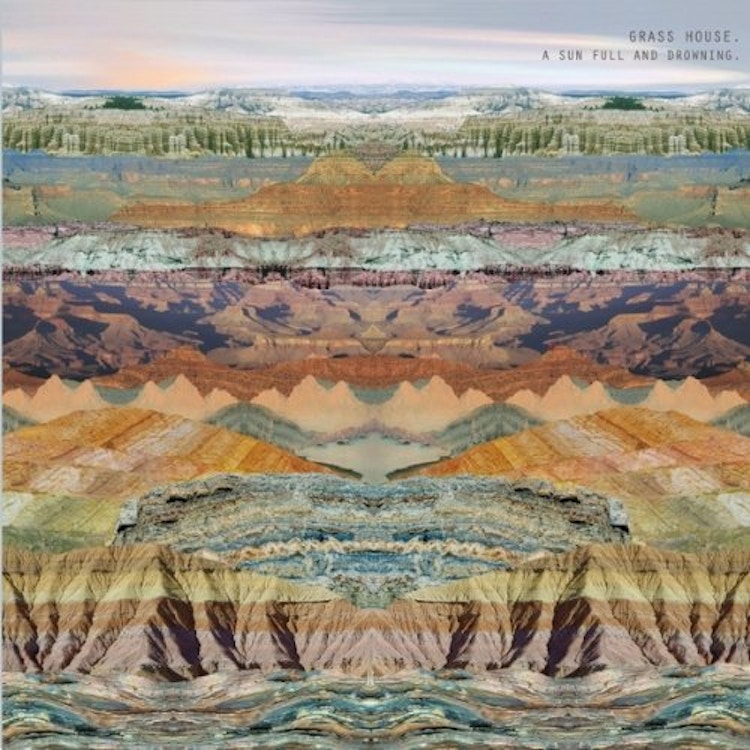"A Sun Full and Drowning"

Grass House make terribly convincing Americana for a handful of Londoners. Although, to be fair, geography and generational relativity differ very little when it comes to musical taste—just as a 12-year-old from Nebraska can download the entire Beatles catalogue, so can a couple of UK lads can grow up in a household teeming with the sonic legacies of Captain Beefheart, Tom Waits, and Johnny Cash.
On their first full-length, A Sun Full and Drowning, Grass House take on the raw and rootsy musical content their name implies, digging up dirt and brightly-colored flowers. The singer opts for a harsh baritone at all times, complimenting the ever-bass-driven orientation of the song melodies. And while bass and the the vocals pull all the reigns, the guitar appears often as anything but one. And while the band likes to dwell down low, and myriad senses of the term, their full-length is replete with way more sunshine than their previous singles and EPs would suggest.
Commanding the focus of each song is singer Liam Palmer. His vocal presence is a crude Rorshach amalgamation of such deep-voiced song-suitors as Nick Cave, Matt Berninger, Iggy Pop, Tom Waits, and Johnny Cash – each emerging when needed. With a lyrical verbosity that insists upon its own poetic timing to a point of near-melodic aversion, a comparison to the former two references is apt.
Cave’s fingerprints also show up in the percussive instrumental dynamism in song stand-outs like “And Now For the Wild” and “Faun.” On the former, Palmer’s refrain is met by machine gun-like high-hat raps, while the verse is treated to drippy Chris Isaac guitar mirages. ”Faun” is easily the album’s most direct song, wasting no time at 3 and a half minutes, and playing out like an evil Roy Orbison tune (it’s even got the timpani cadences of “You Got It”). Instead of Orbison’s soft croon, however, is a vicious snarl that rides this song like a well-tuned Harley Davidson. A 2011 iteration of the tune sees Johnny Cash/June Carter-style backing vocals, which sadly don’t make it to the album version. When they do appear, however, such as on “Tasteless But Taciturn,” the results are glorious and heavenly as the song itself. The latter steps softly and relies on a lightly-tapping verse which builds and breathes and ascends like a soul being lifted off the earth.
On “I Was a Streetlight,” the verses are both momentous and spaced-out, surfing beneath sun-stroked guitar lines. A moment of abrupt clarity comes in the chorus refrains, which affect like a father shaking his burn-out son awake. Overall the melody is sweet and simple, playing like an even warpier Velvet Underground tune put through a whisky-and-chewing tobacco wash cycle.
More dizzy psychedelia come in the fittingly-titled “Spinning as We Turn,” which evokes the Velvets again (here a bit via Love and Rockets), with even more chord visibility, some swelling guitar sonics (a la “Heroin”), singalong-friendly chanting, tambourine smacks, and Lou Reed-like emphasis in the involuntary mandate “…now YOU drag it through the mud.”
The album, like anything good and lasting, takes a good many listens to get at its stubborn heart. The melodies are coated in finely woven layers which aren’t as straight-forward as they seem to be. And with dense lines to dismantle in addition to the materials they’re carefully wrapped in, prepare to invest time in this true love of a band.
Get the Best Fit take on the week in music direct to your inbox every Friday

Great Grandpa
Patience, Moonbeam

Deafheaven
Lonely People With Power

Perfume Genius
Glory





